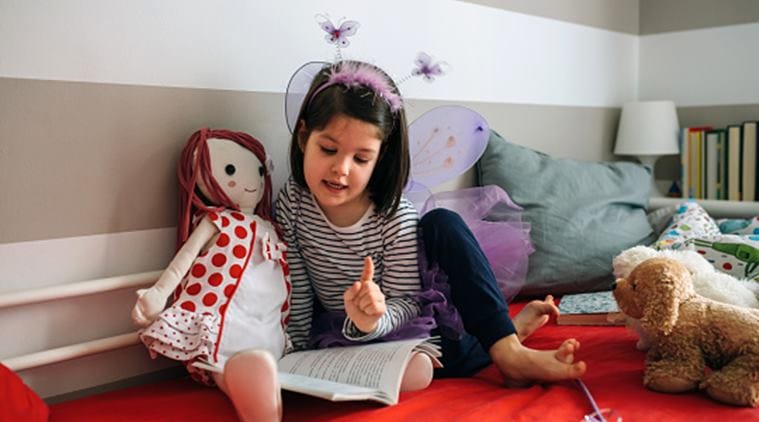 For a child, everything is play and play is everything. (Source: Getty Images)
For a child, everything is play and play is everything. (Source: Getty Images)
By Meghna Yadav
In 1999, Sugata Mitra, the man behind the very famous ‘hole in the wall’ experiment demonstrated that children of any age, group, caste, creed, culture and socio economic status can learn to operate a computer by exploring on their own in a playful state of mind, even without English language proficiency. In the experiment, Mitra and his team simply placed a computer through a hole in the walls of slums in India and allowed children to explore. The resultant significant growth in children’s basic science and math skills through the usage of the internet on computer highlighted the fact that children’s brains function best in a playful state.

The story does not end here though. In fact, a child’s mental health is not only manifested through grades and school performances but also via various other significant parameters that parents need to focus on. Daily activities carried out by children, such as communication with family members, eating habits, sleeping hours, socialising practices, etc, are better ways to know the status of mental health of children. Though manifestation of a healthy mind is seen in almost every task that a human body does, there are only a handful of ways to enhance mental health of children. And play, for sure, tops the chart in that list.
Why is play important?
Have you ever noticed that play is mostly self-chosen and self-directed? Play is never forced upon the child; it is always by choice. It is an activity in which means are more valued than the end. This secret ingredient of play, the sense of ownership (‘I own what I play’) stimulates nerve cells of the brain to make faster connections with each other. In the first six years of life, 80 per cent of brain development is complete. Time and again, research has proven that the more playful a state of mind in the first six years, the stronger is the growth of the human brain. Even in studies on teenagers, playful activities are found to be influential in growth of frontal lobe which is the centre for planning and decision-making.
Apart from the ownership that a child enjoys during play, the magic also lies in its triviality. Peter Gray in his book ‘Free to Learn’, explains that play is an activity that is conducted for its own sake rather than to achieve real world goals of success. Thus, play involves an active, alert but non-stressed state of mind. There is nothing to achieve at the end, as the process of play itself is worth it.
Read| How to nurture good mental health in children
Most Read 1Chandrayaan-3 mission: Dawn breaks on Moon, all eyes on lander, rover to wake up 2As Indo-Canadian relations sour, anxiety grips Indian students, residents who wish to settle in Canada 3Karan Johar says Sanjay Leela Bhansali did not call him after Rocky Aur Rani: ‘He’s never called me but…’ 4Gadar 2 box office collection day 40: Hit by Shah Rukh Khan’s Jawan onslaught, Sunny Deol movie ends BO run with Rs 45 lakh earning 5Shubh’s tour in India cancelled: Why is the Canada-based singer facing the music?
In a nutshell, for a child, everything is play and play is everything. From basic life skills to executive functions of the human brain, everything is best learnt through play. According to Dr Gray, through play, children connect to their own interests, learn decision-making, learn to handle their emotions, make friends and, most importantly, gain happiness.
The power of play in a child’s life is beyond words and irreplaceable. A child of nine years recently summarised it best in one of my conversations with him – “Playtime! Oh, the more the merrier!”
Read| Is modern parenting making your child weak?
Also ReadUnderstanding the negative impact of helicopter parenting‘Mom, Dad, what does rape mean?’51 fun facts about the human body, from a science teacherHow to get your child to sleep in their own room
(The author is a developmental psychologist and consultant for KLAY play schools and day-care for training and parent partnership initiatives.)
© IE Online Media Services Pvt Ltd

